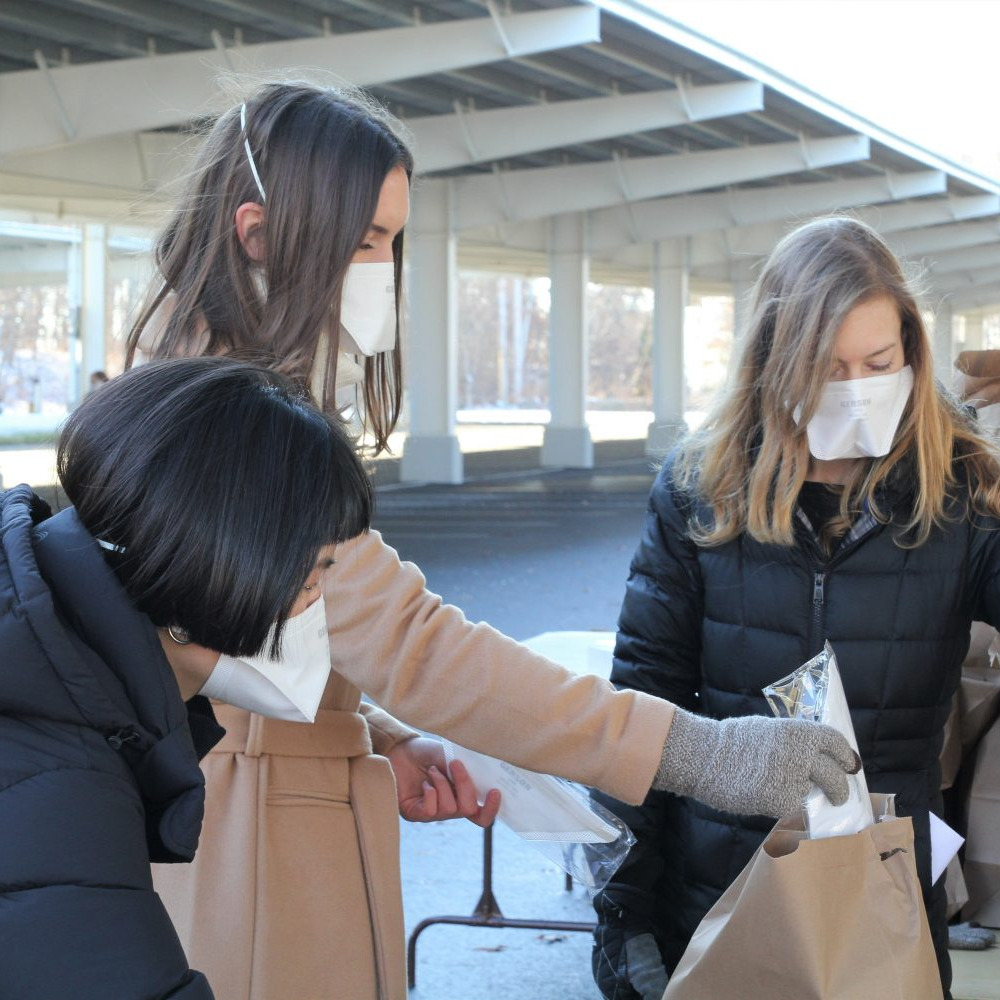The Project N95 Mask Information Guide
Project N95 has been working to get genuine N95 respirators into the hands of healthcare and other frontline workers since the early days of the pandemic. To this day, we provide links, resources, and information to help keep people and communities safe through COVID-19 and beyond.
High-filtration masks are a critical tool in protecting yourself and your community from respiratory illnesses. Take advantage of our expertise in this article and learn more about our work and what you should know about these incredible, life-saving devices.

What is a high-filtration mask?
A high-filtration mask, or filtering facepiece respirator (FFR), is a face covering that must filter a certain percentage of airborne particles, which will be designated in the mask title. An N95 or KN95, for example, filters at least 95% of particles (at 100–300nm), while a KF94 filters at least 94%.
Different mask types are subject to different levels of regulations. In the U.S., N95 respirators are fully governed by NIOSH—the CDC’s National Institutes for Occupational Safety and Health. Any N95 respirator sold in the United States must meet rigorous criteria for manufacturing, labeling, fit, and filtration. Korean KF94 masks are similarly regulated by the Korean government.
How do these masks work?
A high-filtration mask covers the nose and mouth to prevent dangerous particulates from entering your respiratory system. That means they rely on two critical factors to protect you: filtration and fit.
Filtration: Filtering facepiece respirators and similar masks use layers of electrostatically charged nonwoven meltblown fabric that trap airborne particles while allowing air to pass through.
Fit: Additionally, a high-filtration mask must fully seal to your face to ensure that particles are trapped in the layers of the fabric and not sneaking in though gaps between the mask and your skin.
What are the different kinds of high-filtration masks?
In the US market, you can easily find four different versions of high-filtration masks.
- NIOSH-approved respirators: the vast majority of these are N95 masks, a standardized face-covering that must filter at least 95% of airborne particles and is strictly regulated by NIOSH.
- KF94 masks: KF for "Korean Filter" and "94" for 94% filtration efficiency, these were developed to help protect the Korean public against the notorious yellow dust that originates from the dry desert regions of inland Asia. KF94 masks are subject to regulation by the Korean Ministry of Food and Drug Safety.
- KN95 masks: high-filtration face masks manufactured to a Chinese standard—currently GB 2626-2019—that is designed to block at least 95% of airborne particles.
- US High-Filtration Masks: similar to KF94 masks or Chinese KN95 masks, these are specifically designed for use by the general public. Most of these masks use an ear-loop design, and they are made in a consumer-friendly variety of colors and sizes.
Do high-filtration masks protect people from COVID?
Absolutely—evidence-based studies from places such as the Mayo Clinic strongly indicate the efficacy of masks in reducing the spread of respiratory illnesses, as well as nicely demonstrating how masks help.
I’m not in health care—can I buy an N95 or other high-filtration mask?
Yes, N95 respirators, KF94s, and authentic KN95s are safe, available, affordable, and appropriate for public use. Thanks in large part to a surge in domestic manufacturing—including several partners who worked directly with Project N95—the supply of N95 masks is now more than sufficient for healthcare professionals and the general population.
Typically, healthcare workers would only use surgical N95s: those that provide fluid resistance in addition to filtration. During the COVID-19 pandemic, however, the Food and Drug Administration has issued an Emergency Use Authorization that allows medical personnel to use non-surgical N95s in case surgical versions aren’t available.
Both surgical and non-surgical respirators are plentiful in the current market, so we strongly recommend a surgical N95 if you work in a medical setting. For others, either surgical or non-surgical is safe and appropriate to use—the most important thing is to find a mask that is comfortable and fits you well.
How can I buy a high-filtration mask?
Project N95 was the trusted nonprofit shop for genuine, high-quality masks.
The proliferation of counterfeit masks since March 2020 resulted in Project N95’s thorough vetting process, which is designed to ensure that every mask in our product guide is safe and authentic. We have reviewed supplier documentation not only to guarantee that all products were sourced from authorized manufacturers or wholesalers. THIS DATA IS ACCURATE AS OF JANUARY 31st, 2024.
Check out our expansive selection of N95 and other high-filtration masks in the Project N95 product guide.
Where else can I get information about masks?
Aaron Collins—AKA MaskNerd—is a mechanical engineer by trade who has tested, evaluated, and examined numerous N95, KN95, KF94, and other masks since the beginning of the pandemic.
Watch his YouTube videos here, peruse his test data on GoogleDrive, and follow him on Twitter here for good information on mask fit and performance.